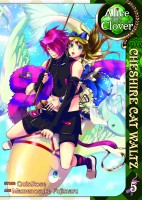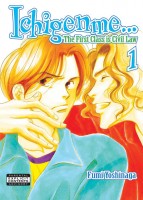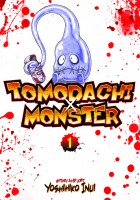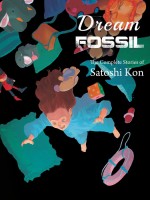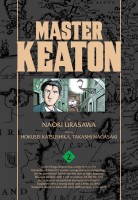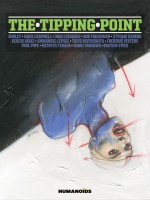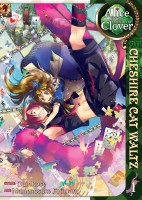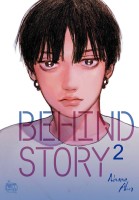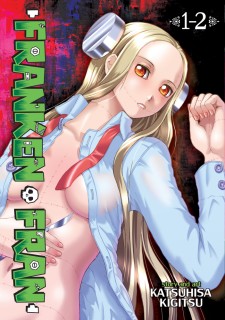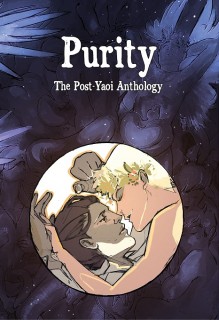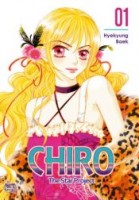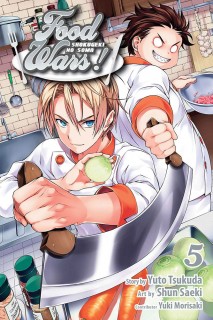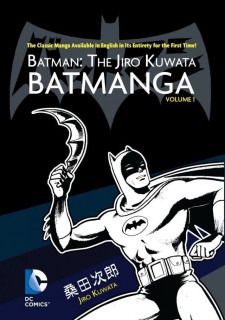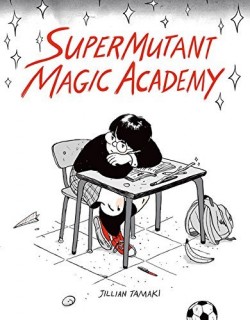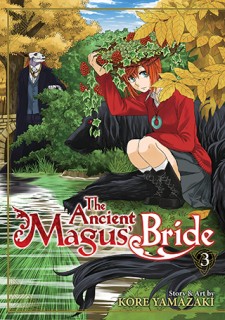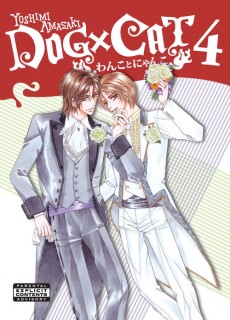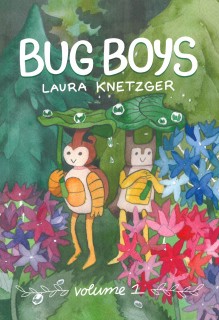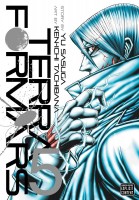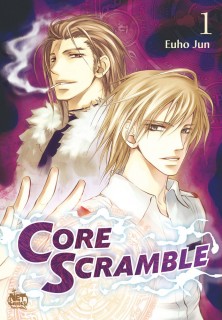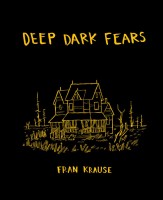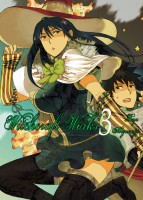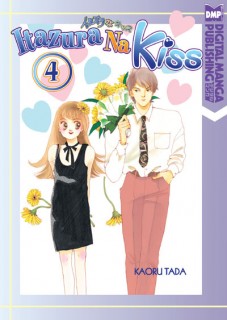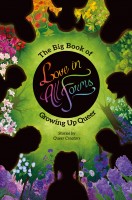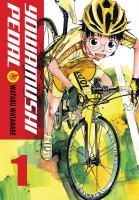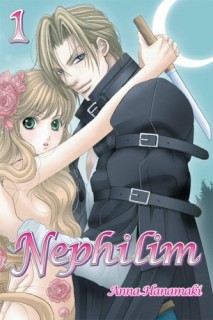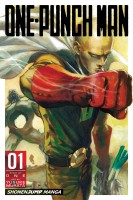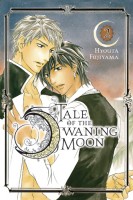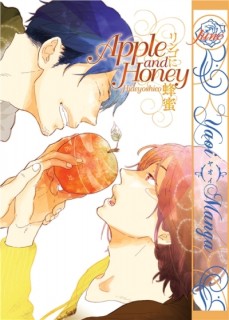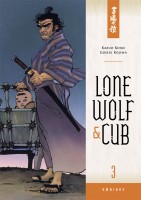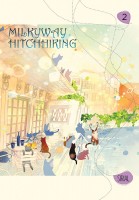My News and Reviews
A couple of different things were posted at Experiments in Manga last week. For starters, since it’s the end of one month and the beginning of another, it’s time for another manga giveaway! There’s still an opportunity to enter for chance to win the first omnibus of Akiko Higashimura’s wonderful Princess Jellyfish. I also posted an in-depth review last week of The Autobiography of Yukichi Fukuzawa, which is an engaging work in addition to being surprisingly entertaining and humorous. Fukuzawa helped to shape modern-day Japan; I was inspired to pick up his autobiography after reading Minae Mizumura’s The Fall of Language in the Age of English.
Quite a few Kickstarter projects have caught my attention over the last week or so. I’m especially excited to see that Sparkler Monthly has launched a campaign to release the first volume of Jenn Doyle’s Knights-Errant in print. The Comic Book Legal Defense Fund launched a project for She Changed Comics, a book that will profile women comics creators from around the world, including Moto Hagio, Machiko Hasegawa, Rumiko Takahashi, the Year 24 Group, and others. There’s an illustration zine inspired by and dedicated to gay manga called Burl & Fur that looks like it will be amazing. As promised, Digital Manga’s most recent classic manga Kickstarter is for a non-Tezuka title—Izumi Matsumoto’s Kimagure Orange Road. Finally, I wanted to take the opportunity to mention the campaign for the North American release of the Skip Beat! anime again. The series needs financial support in order to be dubbed, which is a requirement by the licensor for its release.
Quick Takes
 Caramel by Puku Okuyama. The cover art of Caramel makes it look like a cute and sweet boys’ love one-shot, and at times that’s exactly what it is, but there’s enough about the story and the leads’ relationship that’s dubious and questionable that overall I can’t say that I really enjoyed it all that much. Part of the point of Caramel is the contrast between the two main characters, Roku and Iori, each of whom is childish in his own way. Roku is a successful businessman who is afraid of the dark and picky about his food. Iori has just moved to Tokyo to begin his first year of university, and being younger has had less experience in life and love. I think most of my annoyance with Caramel stems from Roku—I have little patience for and a difficult time sympathizing with adults who exhibit such an astounding lack of self-responsibility, not to mention that he’s an utter creep at first. I have no idea how he even survived before Iori became his roommate and eventual lover. Iori, on the other hand, I found to be much more likeable. He’s the oldest of four siblings and so has developed into a very responsible young adult. Iori also loves to cook and I liked how food was incorporated into Caramel.
Caramel by Puku Okuyama. The cover art of Caramel makes it look like a cute and sweet boys’ love one-shot, and at times that’s exactly what it is, but there’s enough about the story and the leads’ relationship that’s dubious and questionable that overall I can’t say that I really enjoyed it all that much. Part of the point of Caramel is the contrast between the two main characters, Roku and Iori, each of whom is childish in his own way. Roku is a successful businessman who is afraid of the dark and picky about his food. Iori has just moved to Tokyo to begin his first year of university, and being younger has had less experience in life and love. I think most of my annoyance with Caramel stems from Roku—I have little patience for and a difficult time sympathizing with adults who exhibit such an astounding lack of self-responsibility, not to mention that he’s an utter creep at first. I have no idea how he even survived before Iori became his roommate and eventual lover. Iori, on the other hand, I found to be much more likeable. He’s the oldest of four siblings and so has developed into a very responsible young adult. Iori also loves to cook and I liked how food was incorporated into Caramel.
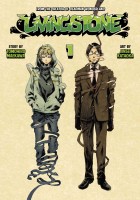 Livingstone, Volume 1-2 written by Tomohiro Maekawa and illustrated by Jinsei Kataoka. I’m not especially familiar with Maekawa, a respected playwright and director, but I recognized Kataoka as one of the creators of the manga series Deadman Wonderland. One of Maekawa’s short plays provides the inspiration for Livingstone, a largely episodic manga exploring themes of life, death, and the human soul. The series follows Sakurai and Amano who help to collect and preserve psycholiths, stones that are the physical manifestations of human souls after they have left their respective bodies. Though at this point frustratingly incomplete, I find the worldbuilding in Livingstone to be one of the most fascinating aspects of the manga, especially in regards to souls. There are a limited number of souls and the world is beginning to run out so that some people, like Amano, are born without them, which is one reason that the work of psycholith collectors is so important. Additionally, souls that are irrevocably damaged at the end of a person’s life will shatter, leaving behind psychic stains that will continue to contaminate others unless the cycle can be stopped.
Livingstone, Volume 1-2 written by Tomohiro Maekawa and illustrated by Jinsei Kataoka. I’m not especially familiar with Maekawa, a respected playwright and director, but I recognized Kataoka as one of the creators of the manga series Deadman Wonderland. One of Maekawa’s short plays provides the inspiration for Livingstone, a largely episodic manga exploring themes of life, death, and the human soul. The series follows Sakurai and Amano who help to collect and preserve psycholiths, stones that are the physical manifestations of human souls after they have left their respective bodies. Though at this point frustratingly incomplete, I find the worldbuilding in Livingstone to be one of the most fascinating aspects of the manga, especially in regards to souls. There are a limited number of souls and the world is beginning to run out so that some people, like Amano, are born without them, which is one reason that the work of psycholith collectors is so important. Additionally, souls that are irrevocably damaged at the end of a person’s life will shatter, leaving behind psychic stains that will continue to contaminate others unless the cycle can be stopped.
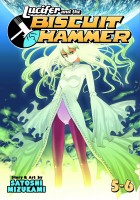 Lucifer and the Biscuit Hammer, Omnibuses 3-4 (equivalent to Volumes 5-8) by Satoshi Mizukami. I’m definitely behind in reading Lucifer and the Biscuit Hammer but I do enjoy the manga. It’s a rather peculiar series with oddball characters who are in the position to either save the world or destroy it—the line between heros and villains can be very thin. Most of the characters have something dark or tragic about their pasts, so their feelings about the world and the other people in it are understandably conflicted. Tragedy isn’t limited to their pasts, either. These two omnibuses include multiple deaths that have great impact, as well as other moments of pain and devastation. But the characters also grow and overcome many of these challenges, becoming stronger mentally and emotionally as well as physically. There are betrayals, both real and imagined, as well as love confessions as friendships and relationships change, some characters drifting apart while others are realizing that people might not be so bad after all. All of this interpersonal drama plays out against the backdrop of a literal battle against monsters as the series ramps up the danger in preparation for its finale.
Lucifer and the Biscuit Hammer, Omnibuses 3-4 (equivalent to Volumes 5-8) by Satoshi Mizukami. I’m definitely behind in reading Lucifer and the Biscuit Hammer but I do enjoy the manga. It’s a rather peculiar series with oddball characters who are in the position to either save the world or destroy it—the line between heros and villains can be very thin. Most of the characters have something dark or tragic about their pasts, so their feelings about the world and the other people in it are understandably conflicted. Tragedy isn’t limited to their pasts, either. These two omnibuses include multiple deaths that have great impact, as well as other moments of pain and devastation. But the characters also grow and overcome many of these challenges, becoming stronger mentally and emotionally as well as physically. There are betrayals, both real and imagined, as well as love confessions as friendships and relationships change, some characters drifting apart while others are realizing that people might not be so bad after all. All of this interpersonal drama plays out against the backdrop of a literal battle against monsters as the series ramps up the danger in preparation for its finale.
